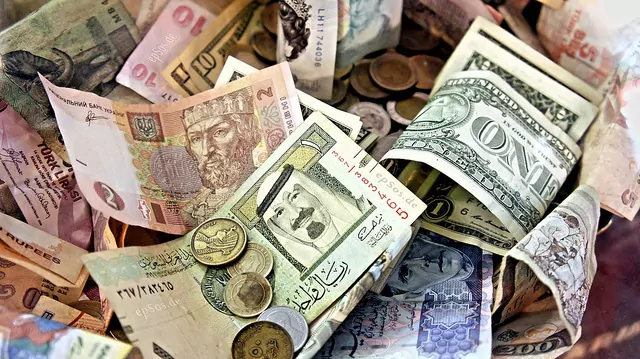
Economic Collapse In Europe
Europe Is Collapsing! Should You Care?
At lunch yesterday, a friend here in Panama City asked what I was going to do with my apartment in Paris now that “Europe has collapsed.” I wasn’t sure how to respond for a couple of reasons.
First, I hadn’t realized that Europe had collapsed…that all of Europe, every one of the 27 EU countries, as well as every one of the other 16 non-EU countries, had collapsed.
Second, I couldn’t make the connection between a collapsing Europe and a need to do anything with my apartment in Paris.
Of course, Europe hasn’t collapsed, although many countries are having seriously rough economic times right now, with Greece leading the way. The talking heads are speculating whether Greece will leave the euro-zone voluntarily or get kicked out. New bailouts are in negotiation. Meantime, Greeks are taking to the streets to protest austerity measures.
The “experts,” too, are speculating about which euro-zone country will be next to “fall.” Will other dominoes follow? Which countries are in the worst shape? Will the euro disintegrate altogether? Will all the countries using the euro revert to their own currencies?
The talking heads need to fill airtime, and the economists need to try to appear as though they understand what’s going on and know what will happen next. Me? I need to mind my own business. Even if I wanted to spend any real time thinking about how the economic problems in Greece might affect me personally, I don’t have any to spare.
And, if I were to take time to think about how what is going on in Greece and elsewhere in Europe affects my owning an apartment in Paris, I think I already know what I’d conclude: I don’t see the connection.
How Should It Affect My Investment?
Even short-term economic issues in France don’t have much of an impact on my thinking related to what to do with my apartment in Paris.
My wife and I bought the apartment we own in Paris eight years ago…because we wanted an apartment in Paris. At the time, we wanted to live in Paris and needed a place to sleep. Thinking longer term, we knew that Paris was a place where we’d always want to return. It’s our favorite city in the world. Our personal agenda was clear.
In addition, we believed that parking capital in Paris in the form of an apartment was a smart long-term investment decision. We believed we were buying a hard asset that would hold its value over the very long haul.
The euro can rise or fall, come or go. The economies of Europe and even France can grow or collapse.
As I remind you often, you need to organize your life so you don’t have to worry about day-to-day fluctuations in any particular market. If the euro collapses…or disappears…my apartment in Paris will still be there. My wife and I will like it as much as we always have. As long as our property manager continues to find renters for us, I can use that income to pay the bills to keep the place maintained and, as well, to continue to build a euro (or franc or whatever new made-up currency the French come up with) nest egg.
If I can’t find renters for the apartment, then the place becomes an expense and maybe then I’d have a decision to make. But this doesn’t keep me up at night. Paris is a global business center, with expats coming on year-long assignments and businessmen arriving for extended stays. In addition, it’s the most touristed city on earth, with a growing demand (despite everything going on in Europe and beyond) for short-term rentals.
Even if France’s economy were to collapse completely, people would still want to come to see Paris. I don’t think that fact is going to change in our lifetimes.
The point is, long-term objectives shouldn’t be derailed by short-term cycles.
My apartment in Paris is part of long-term personal and investment objectives my wife and I share. It doesn’t enter my mind, therefore, day-to-day, except when the property manager e-mails to ask me to order light bulbs for the dining room chandelier (as she did this week)…or when my wife and I decide we want to take a vacation in Paris. Otherwise, the apartment sits nicely as an important line item in the spreadsheet of our long-term plan.
Do I ever think about what’s going on in Greece or elsewhere in Europe? Yes, constantly, in the context of my continual search for opportunity. The problems in Greece don’t interest me. I can’t fix them. I can’t even understand them. But I pay attention to watch the consequences they’re creating play out…for those consequences may well create interesting opportunity.
I have a friend with a Greek wife. They like to travel to Greece. For them, for example, the current economic crisis could be an opportunity to buy a family vacation home for a bargain price… if that fits into their long-term objectives.
Regards,
Lief Simon



